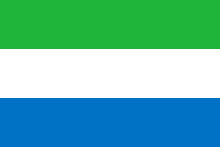Resource information
This Act continues in existence the Guma Valley Water Company, defines its functions and powers and provides with respect to its administration and operations. The Company shall be governed by a Board, which may make Regulations as are necessary for the implementation of this Act. The Company shall produce, distribute and conserve water within the limits of supply and other areas as may be determined by the National Commission for Privatization. The Company shall provide, in its mains, a supply of sufficient water for the domestic purposes of its consumers and in compliance with the water quality standards prescribed by the Sierra Leone Standards Bureau. It shall carry out waterworks and perform other duties as specified. It may, by agreement or compulsorily, aquire land. The limits of supply by the Company shall be the area delineated as the “Limits of supply of the Guma Valley Water Company” and set out in the Third Schedule.The Act also defines offences relative to use of water, damaging the environment of catchment areas and the pollution of water.



